The Technology Landscape Under the Influence of 'Black Myth: Wukong'
![]() 09/11 2024
09/11 2024
![]() 544
544
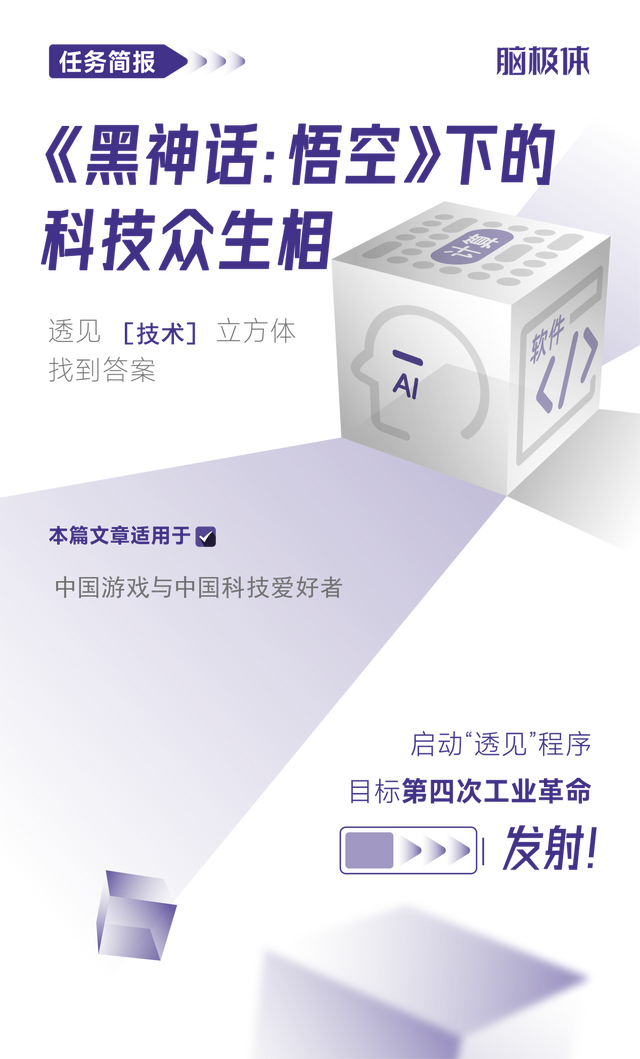
In the recently concluded August, 'Black Myth: Wukong' pushed the popularity of domestic games to an unprecedented level.
According to VG Insights data, the total sales of 'Black Myth: Wukong' have reached 16.9 million copies. Faced with this massive traffic, various manufacturers can hardly afford to miss out. Any company that can somehow associate itself with this monkey is bound to support, promote, and market it.
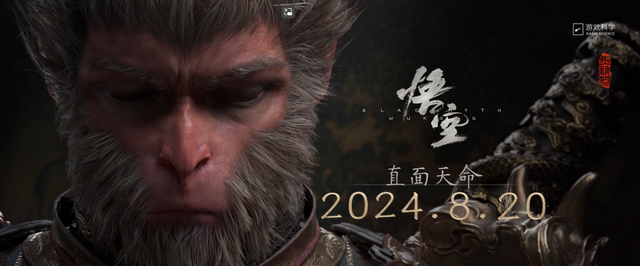
As a 3A game, 'Black Myth: Wukong' is inherently closely tied to hardware, the internet, and terminals. Therefore, technology manufacturers have a more natural and seamless access to the game's traffic. Thus, we witness a spectacle where the journey to the West becomes a grand showcase of Chinese technology.
Curiously, technological self-reliance has become the main theme of development in recent years, resonating with the spiritual core of the game's characters.
Today, let's take stock of the diverse technological landscape that has emerged amidst the 'Black Myth: Wukong' craze.
This vibrant showcase is the result of every blow dealt by the Monkey King.

While 'Black Myth: Wukong' is also available on PS5, Chinese PC gamers are undoubtedly more mainstream. Compared to desktops that may not be as versatile for office work, gaming laptops that balance work and play may better suit the needs of these "Fated Ones."
As a result, gaming laptops were among the first products to benefit from the game's popularity.
Interestingly, among the gaming laptop brigade, it was Honor, a relatively younger brand, that first embraced the 'Black Myth: Wukong' hype. Officially classified as a gaming laptop, the Honor MagicBook Pro 16 leveraged the game's launch on August 20th for extensive promotional efforts, subsequently sparking a wave of follow-up tests by tech and gaming bloggers.
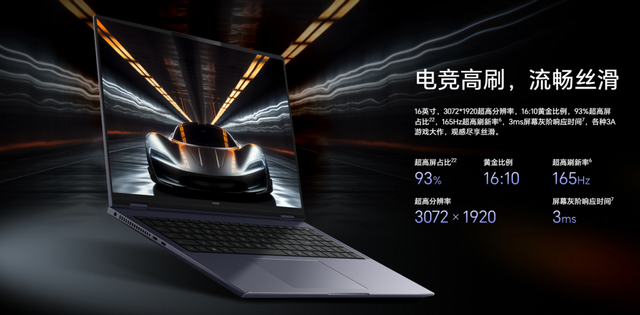
The results speak for themselves. The Honor MagicBook Pro 16 stood the test in terms of frame rate stability and audio quality. Notably, regarding the often-criticized issue of thermal management in gaming laptops, feedback from players and media outlets suggests that the Honor MagicBook Pro 16 performed admirably while running 'Black Myth: Wukong,' keeping its primary heat zones around 40°C.
A few years ago, there was a discussion in the industry about a phenomenon: in the fiercely competitive PC market, emerging Chinese tech forces opened a niche with their ultra-thin laptops, successfully seizing the initiative in new market trends. The success of the Honor MagicBook Pro 16 perhaps demonstrates that this shift is broadening. Variables from China's smart terminal industry, once confined to office and business markets, are now extending into the gaming sphere, heralding new PC trends.
When discussing 'Black Myth: Wukong's' partnership with PC manufacturers, Lenovo's Legion Y9000P gaming laptop and Blade 7000K desktop PC, both officially co-branded with the game, cannot be overlooked. Since the game's launch, these two co-branded products have garnered significant industry attention, particularly becoming top choices for new players inspired by the game's themes.
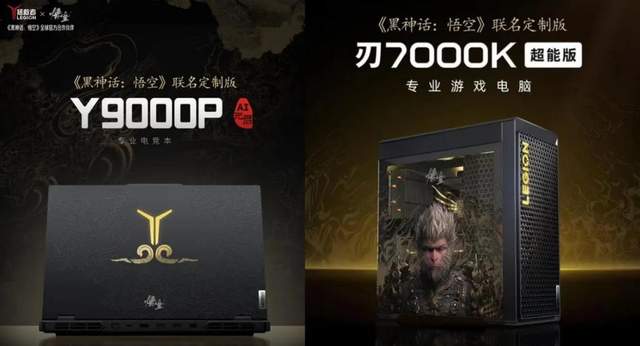
Behind the popularity of Lenovo's Legion Y9000P and other such products lies the crucial role played by China's independent tech supply chain. For instance, the Legion Y9000P employs BOE's ADS Pro liquid crystal solution. From observer to participant, Chinese companies have transformed not only in game development but also in gaming hardware.

'Black Myth: Wukong's' rise not only boosted sales of core devices but also presented opportunities for a myriad of gaming peripherals to break through.
According to relevant data, immediately after 'Black Myth: Wukong's' release, gamepad transactions surged over sixfold. Officially co-branded gamepads sold over 50,000 units, including the Flydigi Octopus 4.
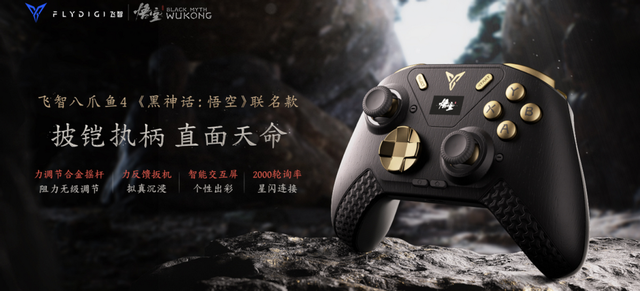
Unlike other gamepads, mice, and keyboards, the Flydigi Octopus 4 employs StarFlash NearLink as its short-range connection technology. Players readily recognize StarFlash NearLink's status as a new-generation short-range wireless technology due to its low latency, high data throughput, and strong anti-interference capabilities in settings like living rooms. In action-packed games like 'Black Myth: Wukong,' the gamepad's superior transmission capabilities are particularly evident. Similarly, StarFlash NearLink enables wireless 8kHz polling rates for gaming mice, achieving ultra-low latencies of 0.125 milliseconds. These precise peripherals enhance the gaming experience, akin to adding a wise companion for 'Black Myth: Wukong' players.
Just as a single hair can transform into myriad forms in Sun Wukong's hands, the connection technology behind a gamepad also reveals the ever-changing landscape of the tech industry.
Remember a few years ago when many wondered what Chinese manufacturers would do if they couldn't use universally adopted short-range transmission solutions amidst the anti-globalization trend? Today, a monkey and a gamepad serve as testament that the journey has been traversed successfully.

If the aforementioned gaming devices showcase China's tech prowess in traditional markets, the following represents a new frontier independently carved out by China's tech industry.
After 'Black Myth: Wukong's' explosive popularity, numerous players unfamiliar with single-player games were eager to try it out. Unaware of the challenges that lay ahead, their primary concern was accessing the game.
With PS5s going unused and gaming PCs proving too expensive, a novel gaming alternative emerged – cloud gaming PCs.
For users of low-end PCs or Apple devices, embracing cloud gaming as their path to becoming a "Fated One" seemed almost predestined, given the lack of viable alternatives.

In recent years, providing game-grade GPU capabilities through the cloud to serve individual gamers has emerged as a new trend in the cloud computing industry, fueled by games like 'Monster Hunter Rise.' 'Black Myth: Wukong's' arrival sparked a monumental opportunity for cloud gaming, prompting major cloud computing vendors and cloud gaming platforms to jump on the bandwagon, infusing a typically B2B-focused industry with a vibrant gaming spirit.
Alibaba Cloud's Wuying Cloud PC was among the first to capitalize, enabling users to quickly install 'Black Myth: Wukong' by loading specific images after selecting a GPU-enabled plan. Users can also configure cloud PC parameters to minimize latency in remote gaming.
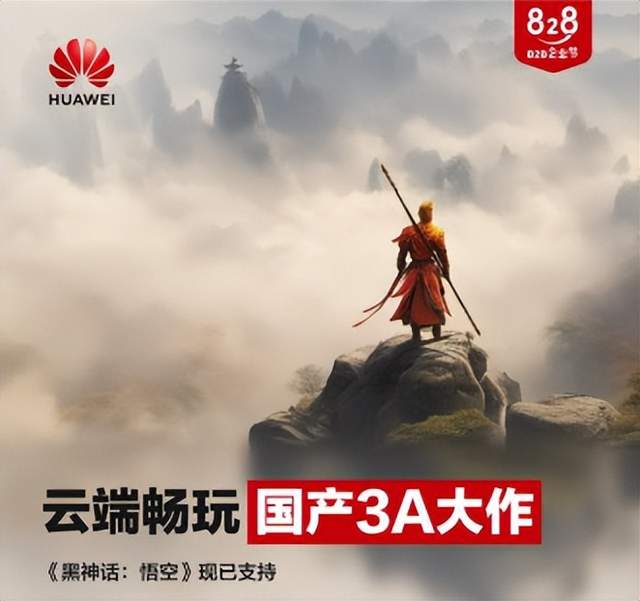
Subsequently, on August 25, Huawei Cloud launched a dedicated cloud workstation for 'Black Myth: Wukong,' supporting both Windows and macOS systems, along with attractive discounts for new users.
Meanwhile, Telecom Cloud and JD Cloud also introduced cloud PC versions of 'Black Myth: Wukong,' contributing to the flourishing cloud gaming landscape, along with various cloud gaming platforms.
However, realistically speaking, 'Black Myth: Wukong's' impact on cloud gaming is primarily limited to promoting the concept. Remote gaming demands stringent network requirements, particularly for action games sensitive to operational latency. Given current network conditions, cloud gaming is unlikely to be gamers' first choice, serving instead those with specific game preferences or multi-device gaming needs.
Perhaps, moreover, 'Black Myth: Wukong' could serve as a catalyst for upgrading home networks?

The application of large AI models has been a topic of ongoing discussion in recent years. Regardless of opinions, their significance and potential for transformation are undeniable.
Yet, in reality, tech implementations often stem from subtle scenarios, such as using large AI models to search for game strategies, explore storylines, or engage in awkward conversations with NPCs.
AI agents are considered a promising avenue for large model deployments. Recently, browsing various AI agent platforms reveals that the top traffic drivers are unanimously related to 'Black Myth: Wukong.'
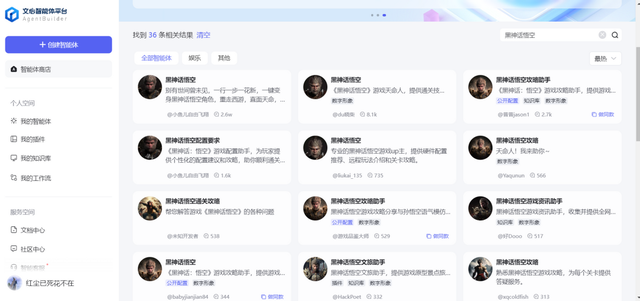
For instance, on Baidu's Wenxin AI Agent platform, one can find question-and-answer guides, game background information, tourism introductions tied to the game's themes, and various "Black Myth" AI agents that mimic in-game character dialogues. Unlike traditional guides and peripheral game content, AI agents offer interactive features like question-and-answer sessions, enhancing immersion and playability. Moreover, developing AI agents is straightforward, requiring only a few prompts for codeless generation. This efficiency surpasses even some graphic and video game content, swiftly capturing traffic highs post-'Black Myth: Wukong's' popularity. These values underscore the commercial potential of AI agents and demonstrate how large models can be grounded in practice.
Furthermore, diverse large model capabilities contribute to 'Black Myth: Wukong's' festivities, including AI-generated fan videos and AI-powered recognition of in-game Easter eggs. Revolving around 'Black Myth: Wukong,' a showcase for domestic AI technology has emerged.
These technologies represent but a fraction of China's tech prowess on display during the "Monkey Season." Gaming in smart homes, upgrading 3A gaming experiences with multimedia solutions, accelerating game development through cloud rendering, and enhancing NPC interactivity with AI – the journey of the "Fated Ones" encompasses not just battles against demons but a dazzling array of technological wonders.
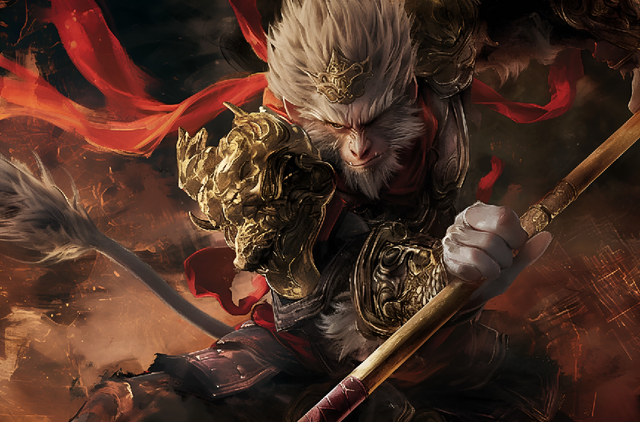
This vibrant backdrop stems from China's tech sector's abundant content and technological prowess. As technological self-reliance becomes the main theme in recent years, China's tech industry has rapidly shifted from a product-oriented "processing" model towards an independent, foundational, and innovative technology-driven approach.
Gradually accumulated technological achievements are transitioning into commercial applications, realizing value spillovers. 'Black Myth: Wukong' aptly serves as a natural stage for this "tech spillover."
Has China's tech truly reached the forefront in areas like chips, AI, and fundamental hardware and software, with few rivals?
The answer to this question echoes a frequently quoted phrase: "The journey to the West is more significant than reaching Mount Lingshan."









